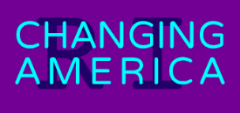1 9 6 3
On Wednesday, August 28th, 1963, more than 250,000 people descended on the National Mall in Washington, D.C. in support of civil and economic rights for African Americans. The event was a mass political protest on an unprecedented scale, with representatives from the leadership of the Congress of Racial Equality, the Student Nonviolent Coordinating Committee (SNCC), the Southern Christian Leadership Conference, the National Association for the Advancement of Colored People (NAACP), and the National Urban League. Indeed, what would become known as the March on Washington brought the ongoing civil rights movement to national attention, making the way for the passing of the Civil Rights Act in 1964.
But the March on Washington meant much more than a rallying call for civil rights. It marked a turning point in a fight already long in the making, and its narrative is rooted in a deep confrontation with the unjust systems that disenfranchised millions of American citizens.
The NATIONAL section explores this little told perspective through the work of Danny Lyon, SNCC’s first staff photographer. Lyon’s photographs, accompanied by a firsthand account of SNCC’s work in the rural and urban south from 1961 to 1965, present a unique look into an evolving movement for social and racial justice in the civil rights era. The LOCAL section follows the accounts of Rhode Island residents, activists, and students in their efforts to support the fight for civil rights, illustrating what the March on Washington signified both to those already in the movement and to those who would continue the fight long after.
